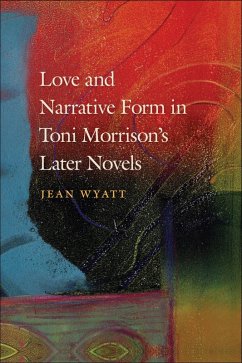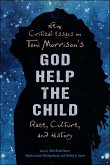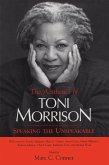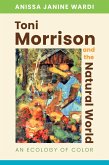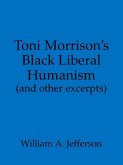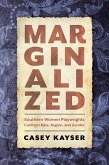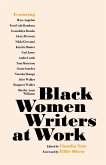In Love and Narrative Form in Toni Morrison's Later Novels, Jean Wyatt explores the interaction among ideas of love, narrative innovation, and reader response in Toni Morrison's seven later novels. Love comes in a new and surprising shape in each of the later novels; for example, Love presents it as the deep friendship between little girls; in Home it acts as a disruptive force producing deep changes in subjectivity; and in Jazz it becomes something one innovates and recreates each moment-like jazz itself. Each novel's unconventional idea of love requires a new experimental narrative form.
Wyatt analyzes the stylistic and structural innovations of each novel, showing how disturbances in narrative chronology, surprise endings, and gaps mirror the dislocated temporality and distorted emotional responses of the novels' troubled characters and demand that the reader situate the present-day problems of the characters in relation to a traumatic African American past. The narrative surprises and gaps require the reader to become an active participant in making meaning. And the texts' complex narrative strategies draw out the reader's convictions about love, about gender, about race-and then prompt the reader to reexamine them, so that reading becomes an active ethical dialogue between text and reader. Wyatt uses psychoanalytic concepts to analyze Morrison's narrative structures and how they work on readers. Love and Narrative Form devotes a chapter to each of Morrison's later novels: Beloved, Jazz, Paradise, Love, A Mercy, Home, and God Help the Child.
Wyatt analyzes the stylistic and structural innovations of each novel, showing how disturbances in narrative chronology, surprise endings, and gaps mirror the dislocated temporality and distorted emotional responses of the novels' troubled characters and demand that the reader situate the present-day problems of the characters in relation to a traumatic African American past. The narrative surprises and gaps require the reader to become an active participant in making meaning. And the texts' complex narrative strategies draw out the reader's convictions about love, about gender, about race-and then prompt the reader to reexamine them, so that reading becomes an active ethical dialogue between text and reader. Wyatt uses psychoanalytic concepts to analyze Morrison's narrative structures and how they work on readers. Love and Narrative Form devotes a chapter to each of Morrison's later novels: Beloved, Jazz, Paradise, Love, A Mercy, Home, and God Help the Child.
Dieser Download kann aus rechtlichen Gründen nur mit Rechnungsadresse in A, D ausgeliefert werden.

